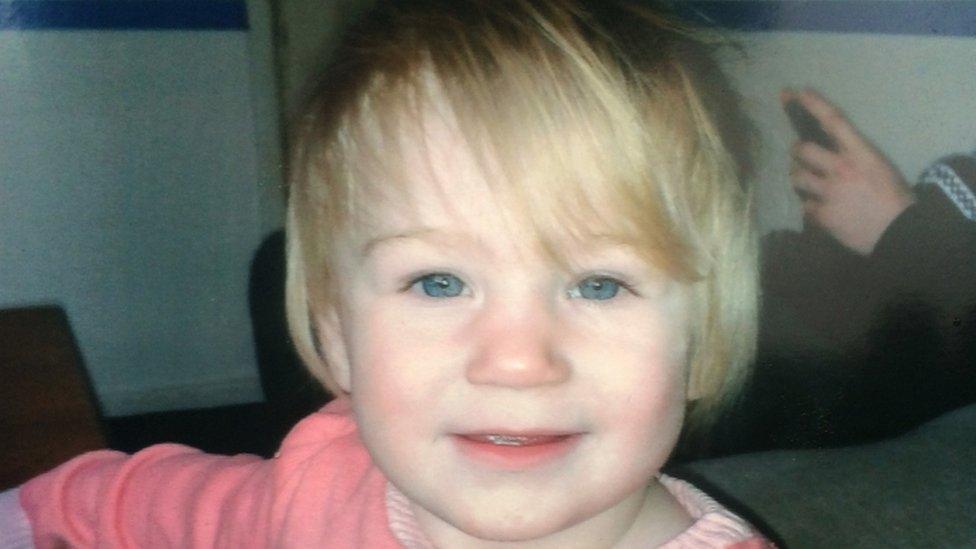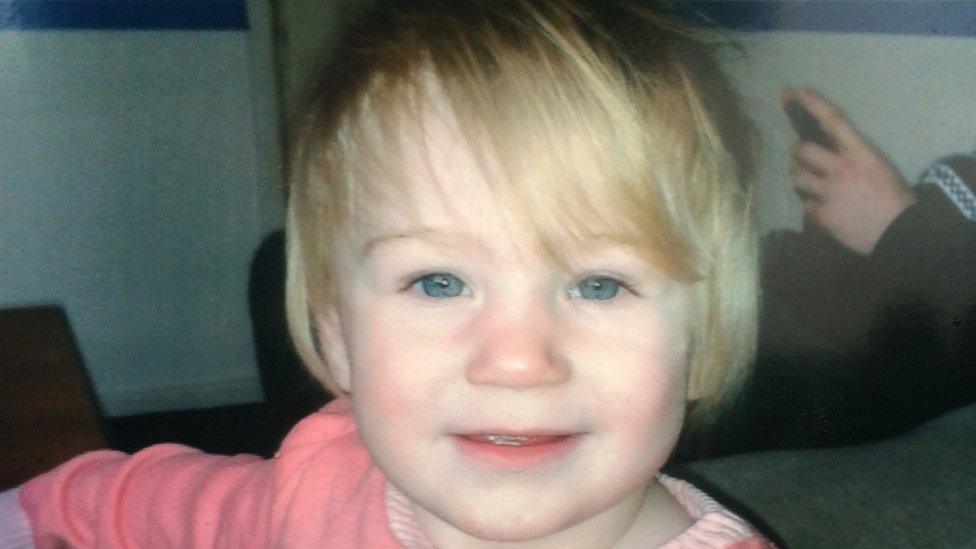Ayeeshia Jane Smith murder: Kathryn Smith has jail term cut
- Published

Kathryn Smith was described by a judge as a "devious, manipulative and selfish young woman"
A mother who stamped her toddler daughter to death has had her minimum prison term reduced by five years.
Kathryn Smith killed Ayeeshia Jane Smith during a "savage outburst" in the girl's bedroom in Burton-upon-Trent, Staffordshire, in 2014.
Smith, 24, from Derbyshire, was ordered to serve at least 24 years in April 2016.
Her murder sentence has been reduced by a judge to 19 years due to her youth and "immaturity".
Ayeeshia collapsed at the flat in the town's Britannia Drive after her heart was ripped due to the force of a fatal blow - a type of injury usually only found in crash victims.
The 21-month-old also suffered many other injuries, including a bleed on the brain, in the months before she was killed.
Smith, from Overseal, was originally sentenced at Birmingham Crown Court, while her former partner Matthew Rigby, from Nottingham, was jailed for three-and-a-half years for causing or allowing Ayeeshia's death.

Ayeeshia Jane Smith died from a tear to the heart in May 2014
After dismissing Smith's appeal against her conviction at the Court of Appeal, the Lord Chief Justice, Lord Thomas, did rule that her original term was too long.
He said: "The minimum term imposed by the judge did not properly reflect the circumstances of the murder, the previous conduct, the other offences of which she was convicted or the mitigating factors.
"In our judgment, the minimum term which properly reflected all the factors should have been one of 19 years."
Smith's bid to overturn her murder conviction was refused despite her lawyers arguing that her conviction was "unsafe".

Smith and Matthew Rigby repeatedly denied having anything to do with the little girl's death
John Butterfield QC had said that an interruption by the trial judge as he made his closing speech caused "prejudice" in the minds of jurors.
However, Lord Thomas said the summing up was both "thorough and fair".
He told the Court of Appeal: "There was ample evidence on which the jury could have reached the verdicts they did."
- Published1 December 2016

- Published16 May 2016

- Published11 April 2016

- Published8 April 2016
